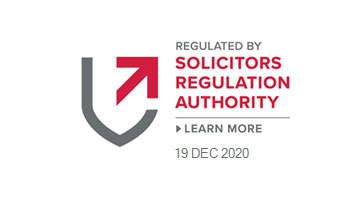Landlords in England and Wales should recall their method to the increasing level of arrears given further extensions to regulations on remedies.
Restrictions on forfeiture for arrears and on Commercial Rent Arrears Recovery (CRAR) which were due to end on 30 June 2021 have now been extended to 25 March 2022 for all commercial leases. Restrictions on statutory demands and winding-up tenants have been extended to 30 September 2021.
Landlords are now facing potential arrears from 2020 and 2021, and the government has announced its intention to restrict certain Covid-19 arrears.
Many landlords have reached arrangements with tenants for deferral of rent payments and made other compromises. The Code of Practice for Landlords and Tenants of Commercial Property 2020, although not mandatory, it is a useful addition to the landlord’s arguments as it requires transparency from tenants on their financial position as part of any request for a concession for the landlord. Where a tenant refuses to provide the information required by the Code, and the landlord can pursue options for rent recovery.
The following table sets out the different options available to Landlords.
- Forfeiture
Summary – Non-payment of rent has exposed a tenant to the risk that a landlord could peaceably re-enter the premises without notice (known in legal terms as forfeiture) and take possession of the premises without court action by changing the locks, effectively ending the lease. However, relief from the courts could be sought and would be available to tenants if they paid arrears plus the landlord’s costs.
Restriction – Suspended from 26 March 2020 to 25 March 2022 (following the most recent extension).
- CRAR
Summary – Commercial Rent Arrears Recovery (or CRAR) allows a landlord to instruct an enforcement agent to take control of a tenant’s goods and sell them in order to recover an equivalent value to any rent arrears.
Restriction – CRAR cannot be used unless the tenant has rent arrears of at least:
- 189 days’ rent on or after 24 June 2020 (but before 29 September 2020);
- 276 days’ rent on or after 29 September 2020 (but before 25 December 2020); or
- 366 days’ rent on or after 25 December 2020 (but before 25 March 2021); or
- 457 days’ rent on or after 25 March 2021 (but before 24 June 2021);
- 554 days’ rent on or after 24 June 2021. Note that the minimum net unpaid rent that must be outstanding will remain at 554 days – it is not being increased as it was in previous extensions of the restrictions.
Prior to the restrictions CRAR could be exercised with 7 days or more of rent outstanding.
This restriction on the use of CRAR has been extended until 25 March 2022. A tenant who failed to pay rent from the March 2020 quarter day to the June 2021 quarter day will be protected (if the net arrears are less than the required 554 days) but if they fail to pay the September quarter’s rent (and future quarters’ rents) CRAR may be exercised.
- Statutory Demand
Summary – A statutory demand is a written demand for payment of a debt. It has often been used as a quick and relatively inexpensive method for landlords seeking to enforce non-payment of rent. This is often issued to pressurise debtors into paying the sums due prior to a more formal legal action such as a winding-up petition, although a landlord is not required to issue a statutory demand before issuing a winding-up petition.
Restriction – Statutory demands issued between 1 March 2020 and 30 September 2021 cannot form the basis of a winding-up petition presented at any point after 27 April 2020 (effectively voiding them).
- Winding-up petition
Summary – A winding-up petition is essentially a court application for a debtor to be put into compulsory liquidation on the grounds that it is unable to pay its debts. A landlord that has not been paid could simply present a winding-up petition at court. Commonly, however, a statutory demand that has not been paid within 21 days is used to establish the debtor’s insolvency.
Restriction – Petitions cannot successfully be presented between 27 April 2020 and 30 September 2021 where COVID-19 has had a financial effect on the company, unless the company would be unable to pay its debts regardless of COVID-19. If a petition is presented and it appears to the court that COVID-19 has had a financial effect, the Corporate Insolvency and Governance Act 2020 restricts a winding-up order being made unless the court is satisfied that the company would be unable to pay its debts even if COVID-19 had not had a financial effect on the company.
- Debt proceedings
Summary – It is open to a landlord to issue debt proceedings in court to recover unpaid rent. Commencing debt proceedings for rent might be more attractive where the tenant has assets over which a charging order could be obtained or it has goods that could be controlled using writs and warrants of control.
Restrictions – No restrictions.
- Administration order
Summary – A creditor has standing to make an application to court for administrators to be appointed in respect of a company. Once appointed and an order is made, a moratorium applies against certain actions against the company without the permission of the court. However, this is a more costly and complex method than presenting a winding-up petition and has not been commonly used in practice by landlords.
Restrictions – No restrictions.
- Guarantee
Summary – Landlords could also seek to recover rent from any third parties who have guaranteed the tenant’s liabilities under the lease.
Restrictions – No restrictions.
- Rent deposit
Summary – Many landlords hold a rent deposit on which they can draw when rent is not paid.
Restrictions – No restrictions.
[/et_pb_blurb][/et_pb_column][/et_pb_row][/et_pb_section]





